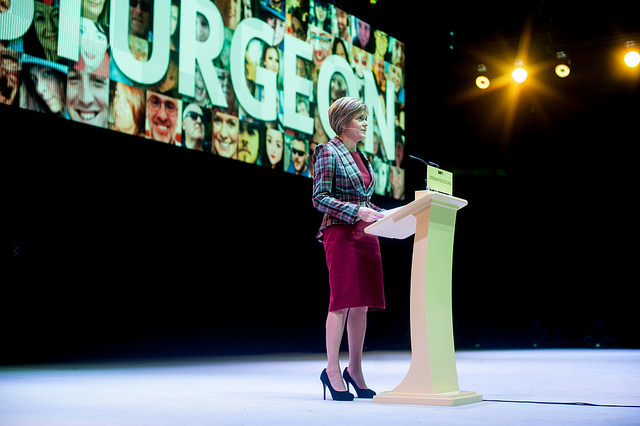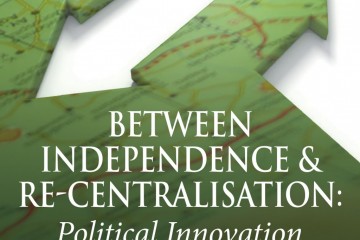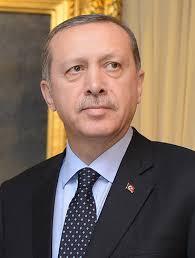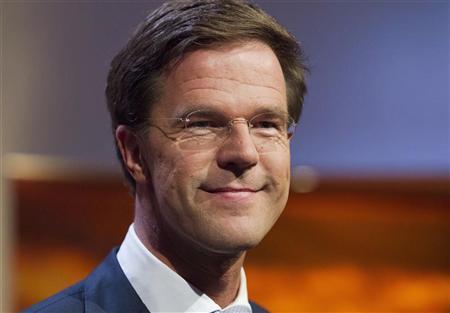
The Loser Takes It All – The SNP after the referendum
If a political party were ever lucky enough to find itself in the SNP’s current position in Scotland, but across the entire United Kingdom, it would be heading towards the biggest landslide in British political history. The Nationalists are predicted to win around 45 per cent of the Scottish vote, giving them between 71 and 91 per cent of Scotland’s MPs.
The SNP offer candidates in only 9 per cent of Westminster constituencies yet are currently the British political party most certain of playing a role in the formation of the next government. The party’s current success comes against a backdrop of winning only 6 MPs in 2010, having as little popularity as the widely-loathed Scottish Conservatives as recently as 2013 and, in September of last year, leading a losing referendum campaign that forced a change in party leadership.
However, it is the referendum question that is now benefiting the SNP. The referendum campaign greatly increased support for independence, which is highly correlated with SNP voting in the General Election, as well as further dividing the Scottish party system, which was already split by attitudes towards independence. The closeness of the campaign has not extinguished hope amongst ‘yes’ voting Scots that independence remains a realistic possibility. Indeed, supporters of the SNP have become ever more fervent in their partisanship since September’s referendum.

‘Devo Manc’: ‘Northern Powerhouse’ or ‘Northern Poorhouse’?
Centralisation has certainly failed, but the promise of devolution to Greater Manchester is being massively hyped. Manchester is a great world city which has long divided observers. In the mid-nineteenth century, what was for de Tocqueville a ‘foul drain’ and for Taine ‘Babel built of brick’ was for the Edinburgh Review, by contrast, ‘foremost in the march of improvement, a great incarnation of progress’. Most recently, with ‘devo Manc’, the city of 1980s de-industrialisation and indie music has been transmuted into a symbol of post-industrial regeneration and devolved government. All this is being talked up as a matter of electioneering by the Treasury and Westminster politicians. After all, the coalition government must be seen to have a policy on ‘rebalancing …

The Cambridge Election Podcast
From the University of Cambridge comes ELECTION, a weekly politics podcast; asking the questions that no one else is in the run-up to the British General Election with the most interesting people inside and outside the political arena. Here below are the sixth and the seventh podcasts.
#6 – Rae Langton on Charlie Hebdo, hate vs free speech & blasphemy
What constitutes hate speech? Does the Press do more harm than good in our democracy? When should words become the government’s business? We put these questions to Professor Rae Langton – award-winning philosopher and the world’s ‘fourth most influential woman thinker’ – and discuss whether free speech can ever be reconciled with a need to suppress hateful voices. The team then discuss the fallout of Ed Miliband’s ‘second kitchen’, whether politicians can – or should – keep their families out of the media spotlight, and the lessons from the Israeli election result.

Digital rights and freedoms: Part 2
More than rights, a set of guiding principles is needed to counterpose to the reigning ideals of ‘security’, ‘growth’ and ‘innovation’. Alternative ideals, perhaps, such as democracy, health and environmental sustainability? See part one. The net has the potential to revolutionize democracy with an informed citizenry empowered to deliberate and decide on key issues. Yet current trends strengthen anti-democratic forces. In addition to concerns over privacy, there is an urgent need to address how the public realm is being hollowed out by corporate interests and advertisers. The ideal of democracy presupposes a shared public sphere in which citizens can construct, debate and decide on collective projects. This requires access to quality information and while the net has certainly increased the …

Netanyahu and the two-state solution
Israel’s international image has suffered tremendously in the past few years. Repeated wars in the Gaza Strip, the continued construction of housing units in Jerusalem and the West Bank, and Benjamin Netanyahu’s provocative rhetoric during his most recent bid to win re-election have poisoned the relationship between Israel and the international community. 2014 proved to be the year of Palestinian statehood recognition votes in Europe. Parliaments from Portugal to Ireland, all the way to the European Parliament in Brussels have considered recognition. Though cautiously worded, the motions indicate a change in the international mood surrounding the Middle East conflict. Netanyahu’s most recent declarations of support for the two-state solution reflect the deep concern that has spread in Israel regarding what is for the first time serious international pressure on the country. But does this necessarily translate into a bright future for the Peace Process?
Netanyahu’s interest in a two-state as opposed to a one-state solution should not take us by surprise. The latter would mean an Arab majority in the would-be Jewish state. At this time, about six million Jews and six million Arabs inhabit the territories of Israel and the future Palestinian state. With a higher Arab fertility rate, Jews would soon be a minority in such a state. Moreover, Palestinians seek the right of return of their over five million refugees as part of the state-creating deal, and it is to be expected that the state would attract a greater number of Palestinian refugees than of Jews eligible to return to Israel. It follows that a one-state solution spells the unthinkable for Israel.

Is federalism a viable option in Spain?
The Spanish state has been suffering from a deep crisis for several years, as Basque and Catalan claims for the ‘right to decide’ have clearly illustrated. Thus, it’s hardly surprising that the federalist option has been rediscovered as a way to solve the problems of the ‘State of Autonomies’. Is federalism a realistic solution?
To answer this question, two aspects should be considered: 1) the potential of federalism as a solution to the specific problems linked to national pluralism; and 2) the viability of federal reform in Spain.
1. Federalism and national pluralism
Federal studies have been considerably revived over the last 20 years and have abandoned some of their former beliefs or convictions. Federalism is not a panacea for solving problems of national pluralism in democratic contexts. Nor is federalism is a project necessarily concerned with national diversity (see Seymour and Laforest 2001: 9-10). This renewal has been greatly motivated by the difficulties encountered in advanced democratic systems (Canada, Belgium, Spain, to give a few examples) to reconcile deep diversity with the specific demands of the democratic principle. That is what Carl Schmitt already referred to in 1928 (2003: 356) when he emphasized the necessity of (existential) cultural and political homogeneity to ensure the stability of federal states. Empirical evidence confirms the German jurist’s theory. The great majority of federations, including those which started with important cultural and political diversity, evolved towards a form of Unitarian federalism which, in its fundamental aspects, eventually adopted the shape of the dominant State, the Nation-State (one State, one people). Schmitt refers to this federal form as ‘the federal State without federal bases’ (2003: 368). In the most recent specialized literature calls this type of federalism ‘territorial federalism’, that is to say a way to organize the political power of a single people or nation from a legal and territorial point of view (otherwise known as a monistic theory of federalism; see Karmis and Norman 2005: 3-17).

The perils of Turkish presidentialism
With Recep Tayyip Erdoğan sworn in as Turkey’s first popularly elected president last August, the debates on adopting a presidential system have once again come to the forefront in the run-up to the Turkish general election in June. The most important implication of the election will be whether it will lead to a formal move toward presidentialism in Turkey’s constitution.
Prior to the election, Turkey’s political system was admittedly complex. In 2007, Abdullah Gül, Erdoğan’s predecessor, was the last to be elected under the former system, in which parliament elected the president. He took office following a strained process between the Justice and Development Party (AKP), the Turkish Armed Forces, and the Republican People’s Party (CHP). The first presidential election in April was boycotted by the CHP. The Chief of the General Staff of the army made statements expressing the wish for a sincerely secular president, and published an e-memorandum warning against emerging disputes regarding the secular nature of the Turkish republic in the context of the election. Eventually, the AKP called an early general election in July, after which the presidential election was re-held in August.
As a further response to the crisis, the AKP held a referendum in October, ensuring the popular election of the president. Thus, Turkey remained a parliamentary system with a ceremonial president until the first popular presidential election was held, and Erdoğan was elected last year. Now, the system has become semi-presidential with both a popularly elected president and a prime minister responsible to the legislature. Crucially, the president does not hold substantial executive powers.

How to run TV debates in a multi-party system
Today, the people of the Netherlands vote for their provincial governments. On face value, the Dutch middle legislative tier has limited powers. However, the results of these elections will also determine the composition of the Eerste Kamer, the Netherlands’ legislative upper house. Elections are also simultaneously held for the Water Board, arguably the most important institution in the Netherlands given its responsibility for water levels, dyke planning and maintenance and other such responsibilities that keep the population’s feet dry. All in all, it’s an important day at the polls.
According to modern conventions, important elections require a TV debate between party leaders, but this is easier said than done in a political system where eleven parties (plus an assortment of regional parties and independents) are represented in the political system. The Dutch have arrived at an innovative solution, running a series of one-on-one mini debates featuring two party leaders at a time.
Last night’s ‘TV debate’ featured nine debates in total, each discussing a different topic, and each lasting a little less than ten minutes. The leaders of the six ‘main’ parties (VVD, PvdA, CDA, D66, SP and PVV) each had two opportunities to debate, while the leaders of the six ‘small’ parties (Green Left, Christian Union, 50+, Party for the Animals, Reformed Political Party and Independents) each had the chance to debate once. Topics debated ranged from energy policy to health insurance.









